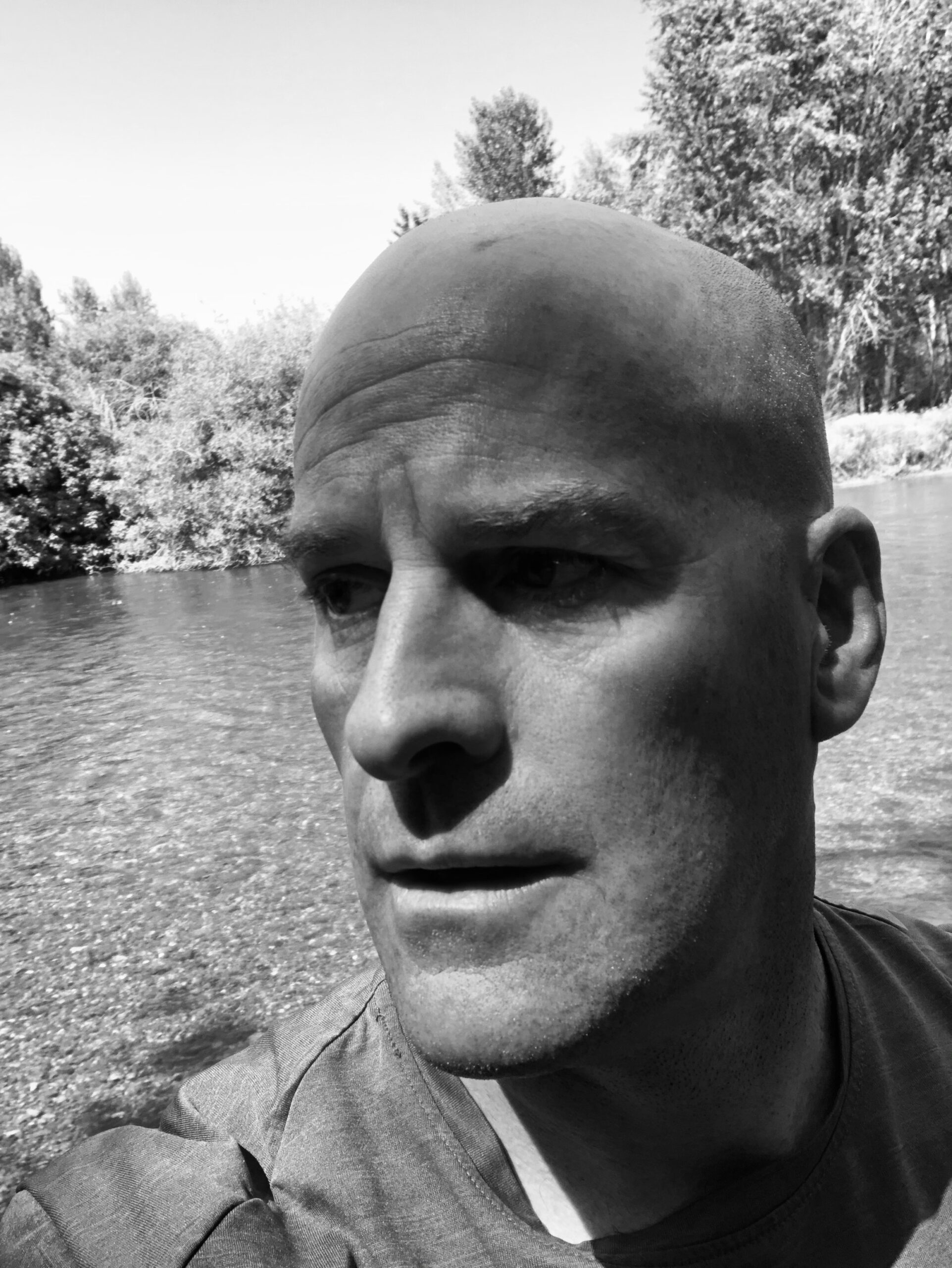remains unexplained:
the American urge
to fashion a bolas
from ragged sneakers
and hurl them
so they stay entangled
on a slack telephone
wire and dangle,
fading for decades,
abraded in grinding sun
and raw weather
to a sad spangle
of suspended surrender—
this morning, above the corner
Dari Mart in Eugene,
the grave mutter
of oily rain on black
pavement, a haggard woman
layered in three
hoodies (outer: mulberry,
middle: cornflower,
inner: chartreuse),
who unclutters
her stuttering mind
by adorning the damp air
with jagged obscenities,
screaming into the befuddled
beards of electrical
workers in blazing yellow
vests (demanding they
return to Germany),
the sodden sky
as blank as the thoughts
of the enslaved.
Urge an explanation
and America remains:
1) a haunted race
that flaunts its failure
to wear things out;
2) open for donations;
or 3) the subconscious need
to lag barefoot
until we breed callouses
or bleed our tracks
into the threadbare styles
of our surplus dreams.
This explains who urges
the remains of America.
Who ornaments towns
in mangled ganglia
of outdated footwear?
Who drapes urban
mistletoe of frayed canvas
and rubber to mock
the blistered kiss?
You estranged descendants
of hangmen and gauchos
unable to refrain
from stringing up
strangled marionettes
in stitched gibbets
of unoriginal sin.
How pendulates the soul’s
unwinding? How
hangs the stray heart’s
lace? The abrupt
instant the tangled knot
rots, your odd piñata
plummets and thuds,
scattering its twisted
miscellany of emptiness.
With the frail sway
of your display
you say: only outpace
obsolescence, be
the forerunner to your
feet. One makes a parade
if—heel, toe, strophe,
antistrophe—with
soft-shoe sophistry
you defy alternate angles,
evade the explanation
of yourself, and elevate
your everlasting trophy of despair.
“THERE’S NO THROUGH TRAIL” —HAN-SHAN, TRANSLATED BY GARY SNYDER
This
by Matthew Babcock

About Matthew Babcock
Matthew James Babcock is the author of Four Tales of Troubled Love (fiction), Heterodoxologies (nonfiction), Points of Reference (poetry), Strange Terrain (poetry), and Private Fire: The Ecopoetry and Prose of Robert Francis (criticism). His poetry collection, Hidden Motion, is forthcoming from Finishing Line Press. His awards include the Juxtaprose Poetry Prize, a Dorothy Sargent Rosenberg Poetry Award, the AML Poetry Award, the Next Generation Indie Book Award for Short Fiction, and Winner of Press 53’s Open Awards Anthology Prize for his novella, “He Wanted to be a Cartoonist for The New Yorker.” He was born in San Francisco and lives with his family in Idaho.
Cold Mountain Review is published once a year in the Department of English at Appalachian State University. Support from Appalachian’s Office of Academic Affairs and College of Arts and Sciences enables CMR’s learning and publications program. The views and opinions expressed in CMR do not necessarily reflect those of university trustees, administration, faculty, students, or staff.
